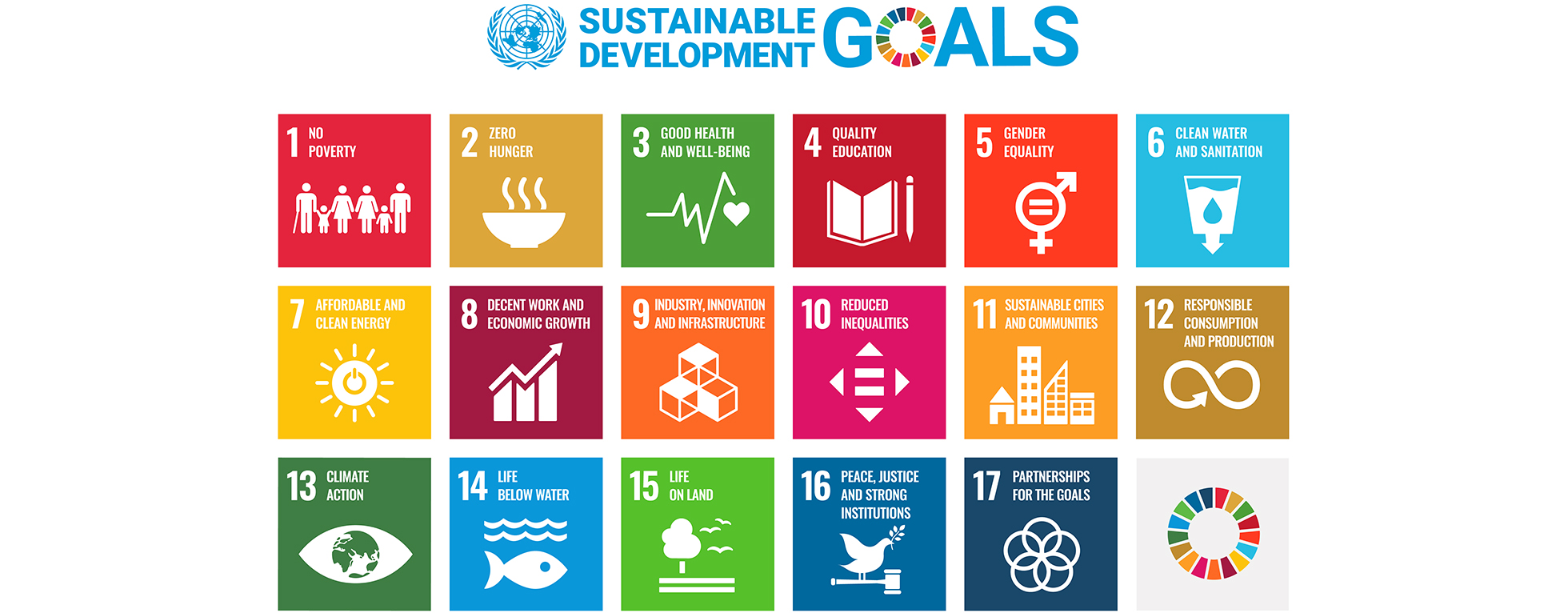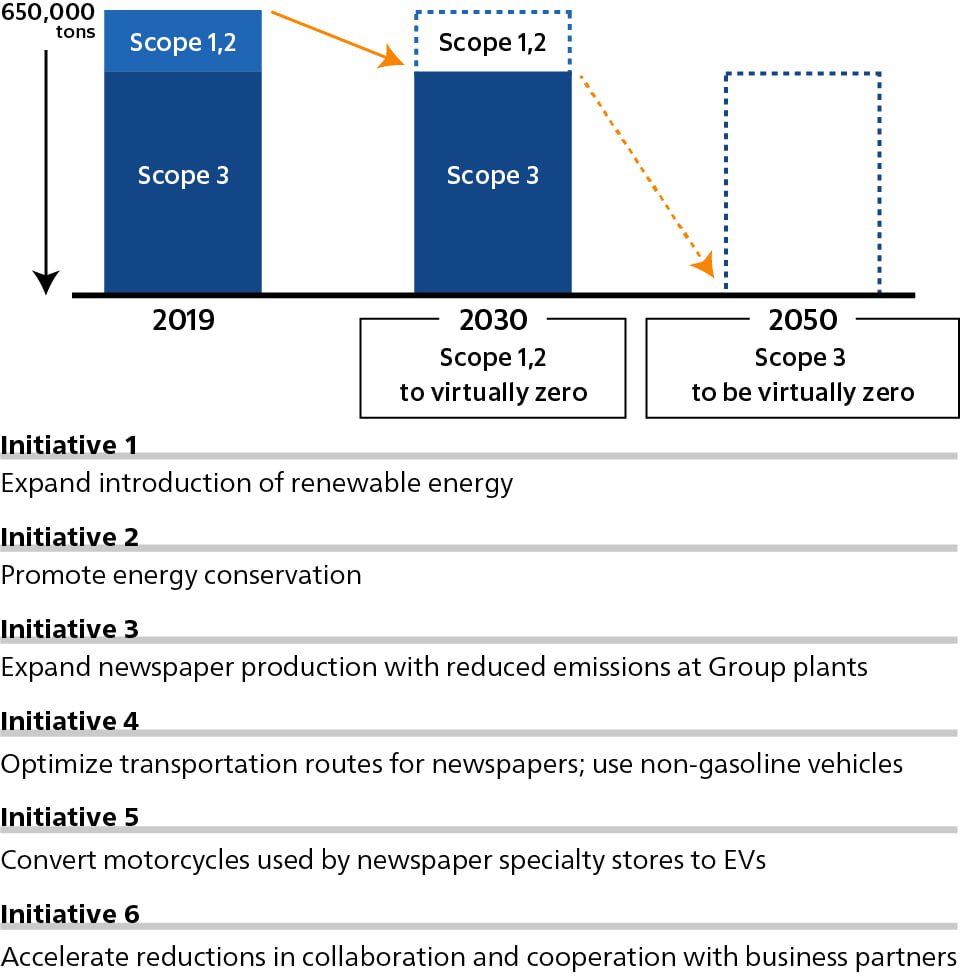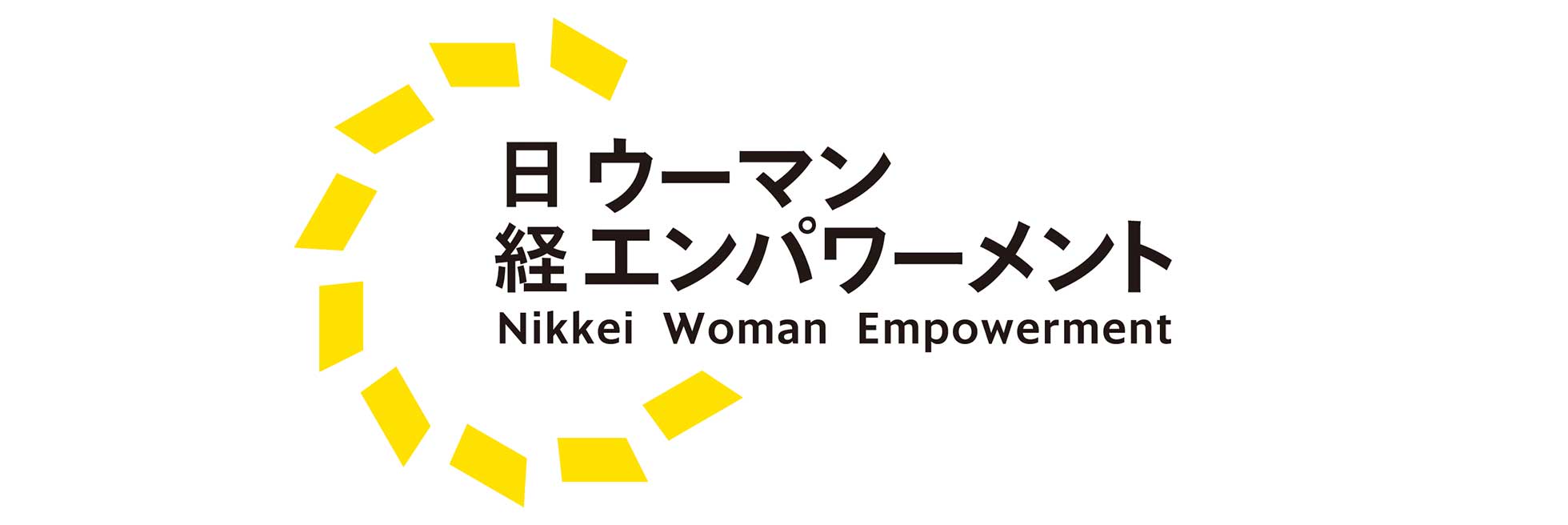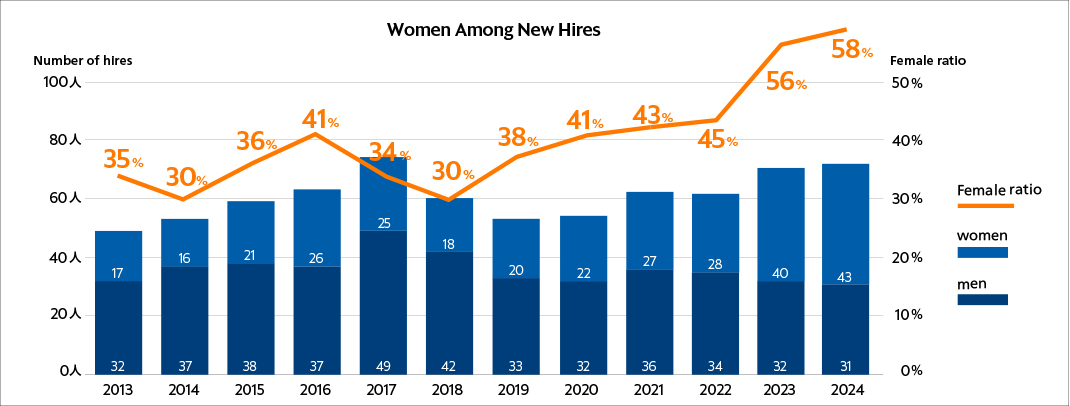Since the Sustainable Development Goals (SDGs) were adopted by the United Nations in September 2015, there has been growing social interest in achieving them by 2030. The UN has called on the world's major news organizations and other bodies to participate in the SDG Media Compact, which was signed by Nikkei Inc. in December 2019. We will proactively propose solutions for companies and individuals through news coverage as well as by holding numerous types of events. We will also promote internal responses to fulfill our social responsibilities.
What Are the SDGs?

The Sustainable Development Goals are a group of global-scale targets that the international community has committed itself to work together to achieve. They were officially adopted at a UN Summit in September 2015, and it is the goal of the entire world, including the developed nations, to overcome the challenges they pose by 2030. The SDGs are rooted in the concept that “nobody should be left behind,” and they include 17 targets and 169 specific criteria to resolve global issues ranging from poverty and climate change to oceanic pollution.
What Is the SDG Media Compact?

To bolster media exposure of the SDGs and promote action aimed at their achievement, news organizations and other forms of media from across the globe are working together as signatories to the SDG Media Compact. According to the UN, more than 100 companies are participating worldwide. Collectively, they can deliver SDG-related content to an audience of more than 2 billion people in 160 nations.
Carbon Zero Targets
The Nikkei Group aims to achieve carbon zero status for Scopes 1 and 2 by 2030.
(Note) The Nikkei Group is made up of Nikkei and its consolidated companies, and “Scope 1” and “Scope 2” are expressions relating to emissions from fuel combustion, energy consumption, and other activities carried out by the Nikkei Group.
The Nikkei Group strives to reduce the environmental impact of all its business activities as part of its corporate social responsibility. In December 2022, we set a carbon zero target to achieve virtually zero greenhouse gas (GHG) emissions, and we are further promoting group-wide efforts to achieve virtually zero emissions for Scopes 1 and 2 (approximately 45,000 tons in 2019) by 2030. We are also working to realize a state of virtually zero emissions including value chain emissions (Scope 3) by 2050.
In July 2023, we set interim targets of 20,000 tons for Scopes 1 and 2 for the Group and 1,200 tons for Nikkei HQ on a non-consolidated basis by 2025 in order to steadily reach our goals. We will continue to refine the calculation of emissions, revise the targets as necessary, and consider moving them forward. In addition, as a media organization, we will keep fulfilling our responsibility to promote the decarbonization of society as a whole.
<Image of GHG emission reductions>
※Calculated in accordance with the GHG Protocol and Ministry of the Environment guidelines,
except for CO2, which is omitted because it accounts for less than 5%.

Factors assumed in setting targets
▼ Changes in power source composition and population
Power source composition is based on International Energy Agency (IEA) scenarios, government forecasts, and the estimated future population of Japan.
▼ Achievement of reduction targets by each industry
The paper industry's long-term vision entails virtually zero CO2 emissions from production activities by 2050. We envision carbon neutrality (CN) in 2050 for the airline industry.
▼ Regulation of truck and motorcycle sales
Truck sales regulations require new vehicles to be electric vehicles (EV) or fuel cell vehicles (FCV) by 2040, and Tokyo regulation involve reduction of new motorcycle gasoline vehicle sales to zero by 2035.
▼ Conversion to electricity derived from renewable energy sources by our own group
We have aimed to switch 40% of electricity consumption in 2019 to renewable energy-derived electricity by 2022.
▼ We plan to use data centers and other facilities that operate using renewable energy.
Changes in GHG emissions of the Group
| 2019 | 2020 | 2021 |
|---|---|---|
| 649,000tons | 591,000tons | 476,000tons |
※For 2021, a decrease is recorded due to more precise calculation.
Endorsement of TCFD recommendations on climate change issues

The impact of climate change on the business environment and management of companies will only increase as time passes. Nikkei has expressed its support for the recommendations of the TCFD (Task Force on Climate Change Financial Disclosure), which calls on companies to analyze and disclose the climate-related impacts of their activities.
The TCFD was established in 2015 by the Financial Stability Board (FSB), an organization comprised of the financial authorities of major countries and other bodies. Its recommendations, published in 2017, were triggered by a sense of urgency that climate change could cause companies to take risks that do not appear in their financial statements. This has the potential to undermine the stability of the financial system.
The proposal outlines four items that are recommended for disclosure: “Governance," which identifies the company's internal structures for dealing with climate change; "Strategy," which includes a scenario analysis of financial impact; "Risk Management," which shows how risks are identified and assessed; and "Indicators and Targets," which are used to manage and assess risks. Nikkei Inc. will work to divulge information in line with the recommendations.
Establishment of Sustainability Committee
The Sustainability Committee, chaired by the President and CEO, has been established within Nikkei Inc. In addition to decarbonization, the committee will address a wide range of sustainability-related issues, which include respect for human rights and gender equality. The committee will create an action plan and submit it to the Board of Directors and other relevant bodies. It will monitor the progress of measures taken by various departments and report back to the Board of Directors and other relevant bodies. The Nikkei Group intends to further strengthen its efforts to realize a sustainable society.
“The Fourth Revolution; Carbon Zero”

In January 2021, as part of its SDG-related work, the Nikkei began running a major series of articles entitled “The Fourth Revolution: Carbon Zero.” The articles designate the dawn of a decarbonized society as the fourth in a series of human paradigm shifts, following the agricultural, industrial, and information revolutions. Attention is also being given to the question of how prepared corporations and governments are for this monumental change.
The Decarbonization Project
The “Nikkei Decarbonization Project (Carbon Zero)” was launched in April 2021, and the Nikkei Decarbonization Committee, chaired by Professor Yukari Takamura of The University of Tokyo Institute for Future Initigatives, was also established. This body meets regularly and is comprised of senior corporate executives and leaders in various organizations as well as expert voices, all committed to the achievement of a carbon-zero society by 2050. The committee examines model cases from Japan and other countries, conducts surveys on public perceptions of companies aiming to decarbonize, and presents awards to corporations, organizations, and individuals who are making notable and vigorous contributions to decarbonization efforts.
The SDGs Festival

July 2018 saw the emergence of another Nikkei Group project, the Nikkei SDGs Forum. Together with the Nikkei and other Nikkei Group media members, the forum will serve as an engine for acceleration of networking among partner companies, local and national government bodies, educational and research institutions, and private organizations. In collaboration with Nikkei BP and the Financial Times, Nikkei Inc. holds the SDGs festival four times a year. Featuring the Nikkei SDGs Forum Symposium, the SDGs Festival is one of Japan’s largest and most significant SDG-related events.
Nikkei’s empowerment of woman

In 2013, the Nikkei Group launched the "Nikkei Womanomics Project" to support women's activities and revitalize the economy. In 2008, it expanded its efforts by establishing the "Nikkei Women’s Empowerment Project" to consider gender equality and diversity from a management perspective. This initiative also has the goal of developing different companies and organizations, as well as the Japanese economy as a whole. Large-scale events and consortiums are planned, and information is disseminated throughout the year.
Diversity and Inclusion at Nikkei
Nikkei is promoting diversity and inclusion initiatives that are in accord with the Nikkei Code of Conduct.
- We proactively organize events related to diversity and inclusion.
- We provide training to ensure that if any discrimination or harassment is detected, it will not be ignored.
- Young personnel are included as members of the project team, and they are promoted to leadership positions based on ability, regardless of age or gender.
- We have introduced a system that easily enables everyone to become a member of a two-earner family, raise children, and care for the elderly.
- Taking sexual minority employees into consideration, we have installed restrooms on all floors of the Tokyo Head Office that can be used by anyone. Such employees are also covered by a congratulatory and condolence payment system.
- In-house announcements are written in multiple languages. We have also established an English-language consultation service.
By 2023, over 50% of Nikkei's new graduate hires were women.

The Nikkei Environmental Declaration
In order to give more force to our drive to take on environmental issues, in November 2007, Nikkei Inc. set forth the Basic Environmental Principles and the Basic Environmental Guidelines, which included quantified targets for greenhouse gas reduction. This measure allowed us to become a leading company in terms of ecological considerations. The process of revising the Basic Environmental Guidelines began in 2017 and is still underway.
◇Basic Philosophy and Guidelines for the Environmental Statement
(Basic concepts)
Protection of the global environment is the most important aspect of the sustainable development of human society, and it is vital to consider this matter with the utmost care. Recognizing that the issue is among our corporate social responsibilities, Nikkei Inc. is committed to reducing the environmental impacts of all our business activities. Taking full advantage of our media capabilities, we will be able to provide full requisite environmental information to all parties concerned. Working in an organization-wide manner, we will strive to harmonize economic and ecological concerns not just for our own benefit, but for that of the global community.
Fundamental Guidelines
1. To reduce the ecological footprint of our business activities to the utmost possible extent, we will take appropriate conservation action and monitor its effectiveness continuously to improve our environmental management framework,
2. We will strive to realize a recycling-oriented society using sustainable measures to take on environmental issues including resource and energy conservation, recycling, and waste reduction,
3. We will always remain in strict compliance with environment-related laws and regulations that have a bearing on our business activities, and we will honor all required agreements.
4. We will use our print and online capabilities as well as our various events to keep the world informed of the importance of environmental conservation.
5. Our employees will all deepen their awareness of environmental matters, and we will nurture environmentally conscious personnel with the ability to motivate themselves for appropriate action.
6. Recognizing that our energy consumption is a core source of greenhouse gas emissions, we will reduce it by an average of one percent each year. Moreover, we will respect international covenants such as the Paris Agreement and work accordingly from a long-term perspective.


